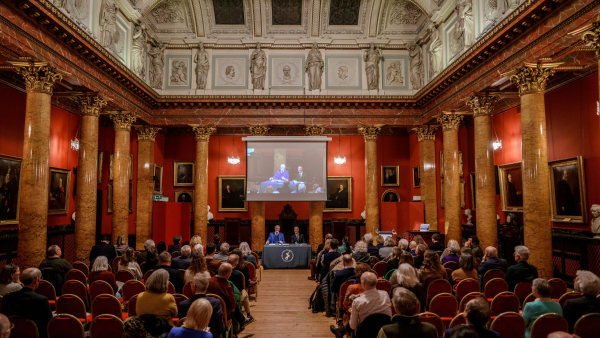In 1802 the Society offered a premium for a mechanical means of cleaning chimneys. This was their bit to abolish one of the great embarrassments of the early nineteenth century, and a "peculiar disgrace of England": the employment of children, sometimes as young as four, to climb up inside chimneys in order to clean them.
These children were sometimes abducted by the master chimney sweeps, and frequently perished in horrific accidents or of soot-induced cancers. The idea was that if a technological replacement could be found, then the case for outright abolition could be made - it was a concerted effort to get robots to steal children's jobs.
Although the Society of Arts played its role, the main campaign was orchestrated by the snappily-titled "Society for Superseding the Necessity of Climbing Boys, by Encouraging a New Method of Sweeping Chimnies, and for Improving the Condition of Children and Others Employed by Chimney Sweepers", founded in the London Coffee-House on Ludgate Hill, before the age of short brand names and acronyms. Its key members included William Wilberforce (famous for his zeal in abolishing the slave trade only a few years later), although one of the key initiators of the movement to support climbing boys (by this stage, dead) was Jonas Hanway (mentioned in connection with the Magdalen Hospital for Penitent Prostitutes and for introducing the umbrella to Britain).
The mechanical replacement for climbing boys was quickly won by George Smart, a timber-merchant and engineer. His "scandiscope" could be operated from the fireplace, was cheap, effective on all but the bendiest of flues, and weighed "no more than a musket". The brushes, if wetted, could be used to put out fires in the flue - a task that would otherwise fall to the climbing boy to do with a damp cloth, putting them in extraordinary danger. But the existence of an effective invention was not enough to abolish the use of climbing boys, because of opposition from the master chimney sweeps.
At first, the campaign tried to get the industry on side, offering prizes for the number of flues swept using the scandiscope, subsidising their purchase of the machines, and advertising the reliable master sweeps who used them. But the master sweeps took advantage of this generosity, purposefully misusing the scandiscopes in an effort to turn customers against them.
By 1809, the campaigners had had enough. Emboldened by the success of the abolition of the slave trade, their strategy changed from cooperation to outright disruption. They promoted brand new entrants into the industry who used the machines, extolling the modest profits that might be made, and encouraged the owners of larger homes to buy their own machines (to be used by domestic servants) so as to actively remove customers from the market. If the master sweeps complained about this disruption, then it was their own fault: "they are exclusively indebted to themselves, as the Society for years took uncommon pains to give them that preference which they pertinaciously refused".
It appears as though the campaign met with some success. The machines were gradually brought into use, in London as well as further afield, and the lot of the climbing boys improved. Crucially, the scandiscope made laws banning the use of climbing boys possible, although it would take decades of campaigning. By 1834 Parliament banned the use of boys under fourteen, extended to twenty-one in 1840. But the poor climbing boys would have to wait until 1875 for a law that had sufficient teeth for enforcement.
Related news
-
Introducing the Fellowship Promotion Guide
Fionna Monk
Our brand-new Fellowship Promotion Guide is a powerful new resource designed to make it easier than ever for current Fellows and staff to share the value of the RSA Fellowship with others.
-
Why 2025 is an exciting year to be an RSA Fellow
Fionna Monk
Happy New Year! 2025 is shaping up to be a landmark year for the RSA Fellowship, brimming with new opportunities, initiatives, and global collaborations. There’s never been a more exciting time to be part of this dynamic and engaging community. Here’s more on why this year promises to be an inspiring and impactful year for RSA Fellows worldwide.
-
The 2024 Angus Millar Lecture
Fionna Monk
The 2024 Angus Millar Lecture was led by award-winning novelist Andrew O’Hagan on the theme of 'Art, Literature and Truth in the Era of Fake News, Algorithms and Artificial Intelligence'.



Be the first to write a comment
Comments
Please login to post a comment or reply
Don't have an account? Click here to register.